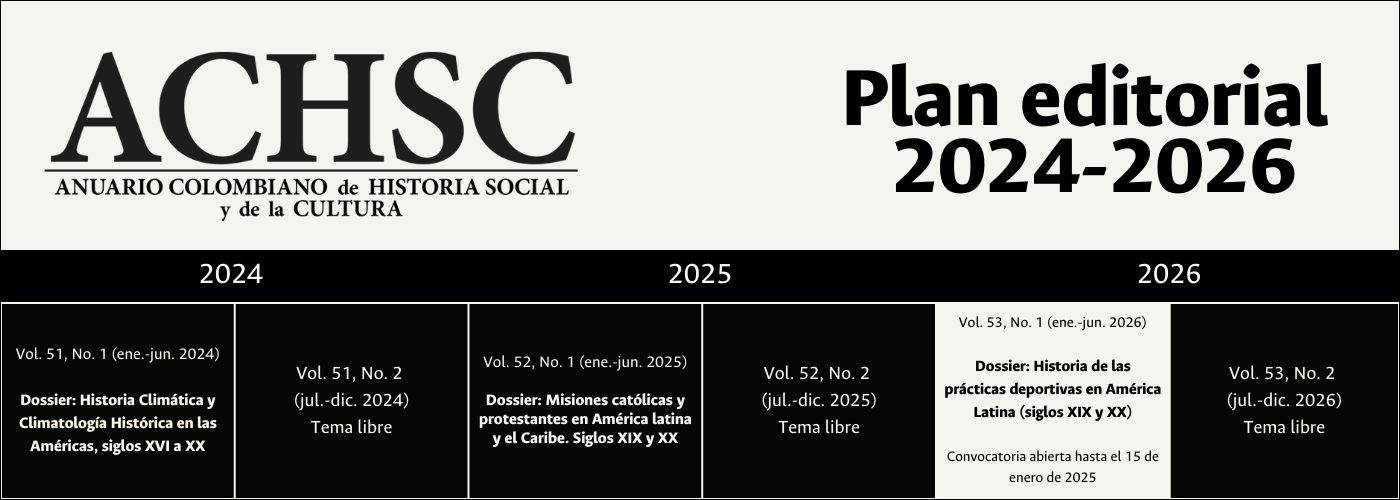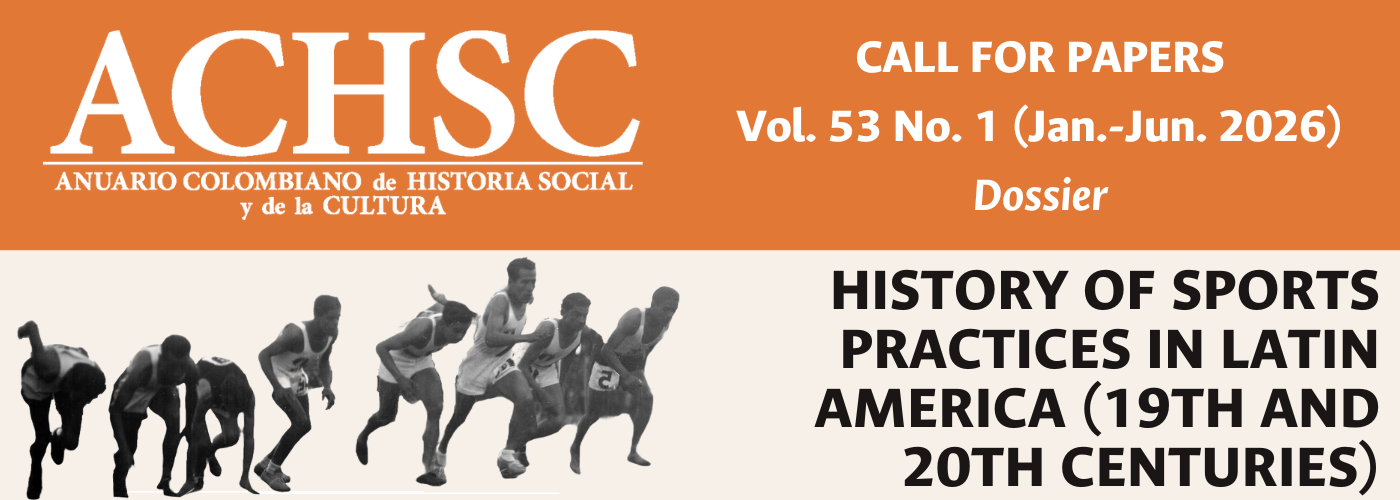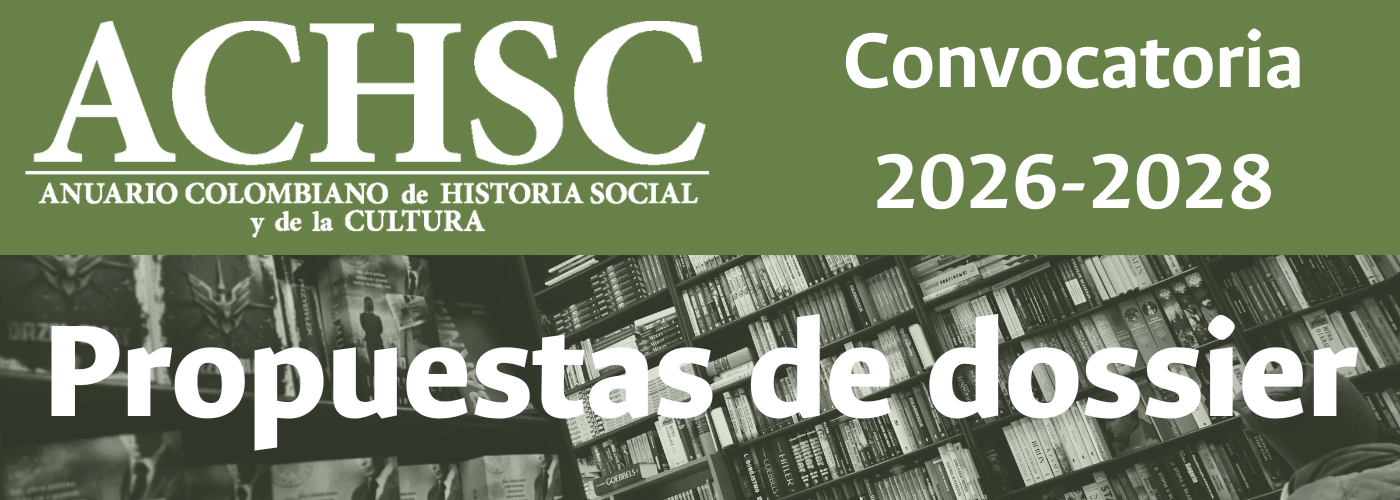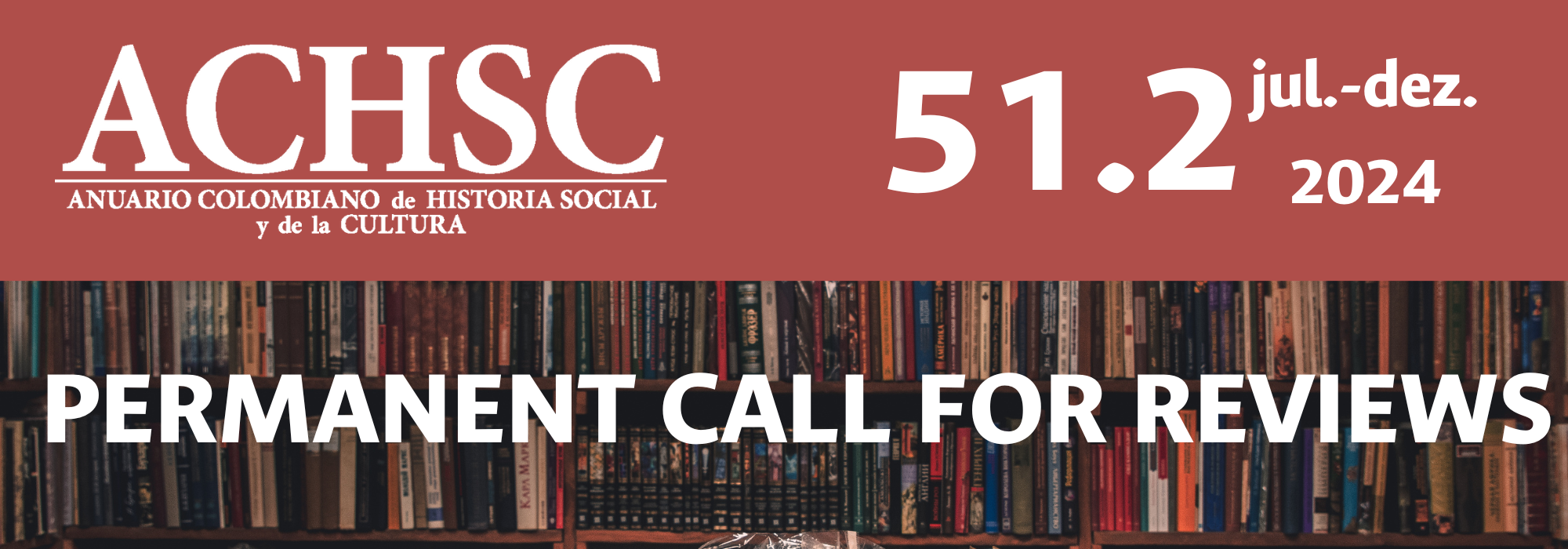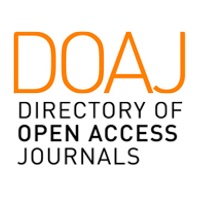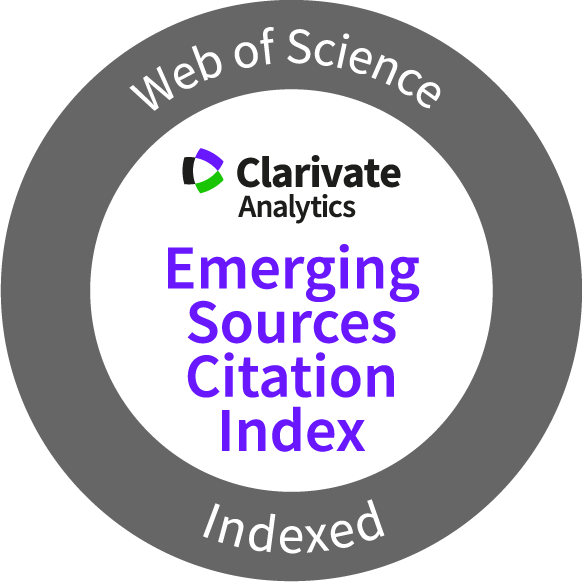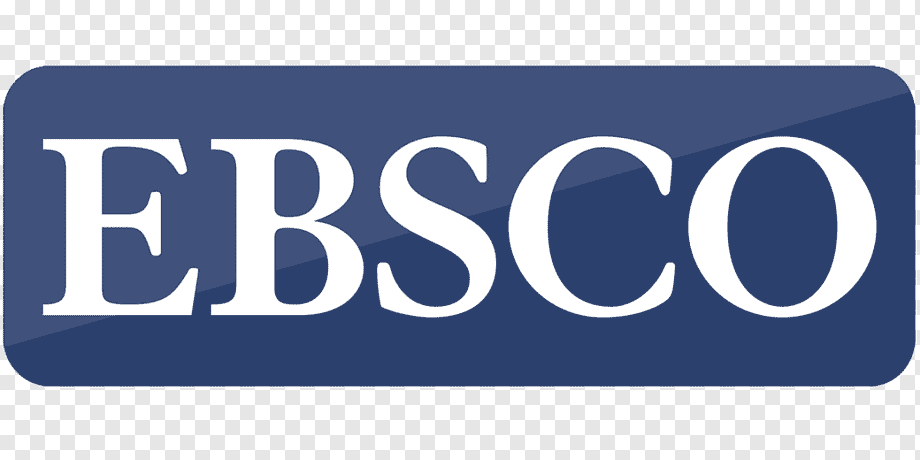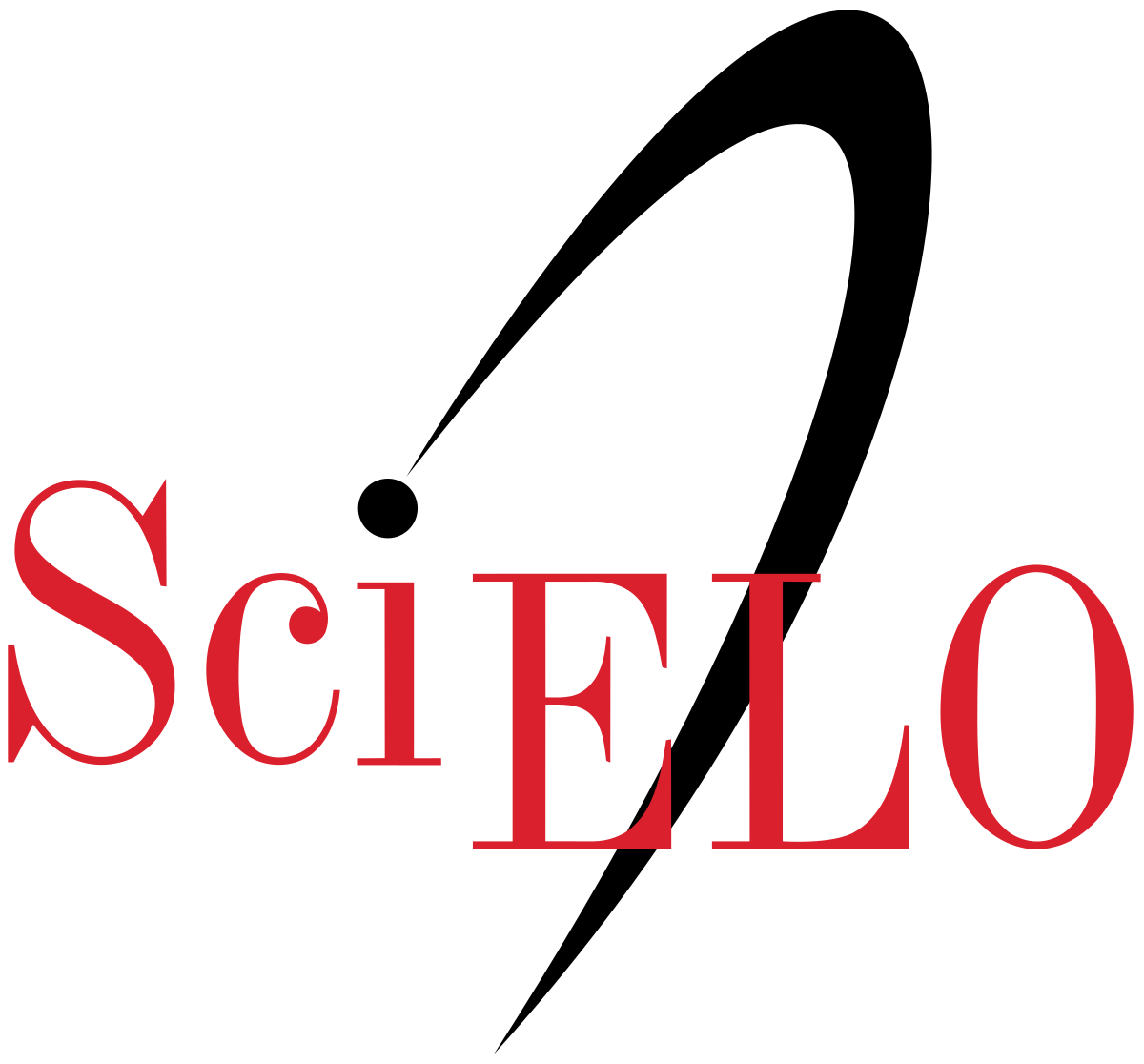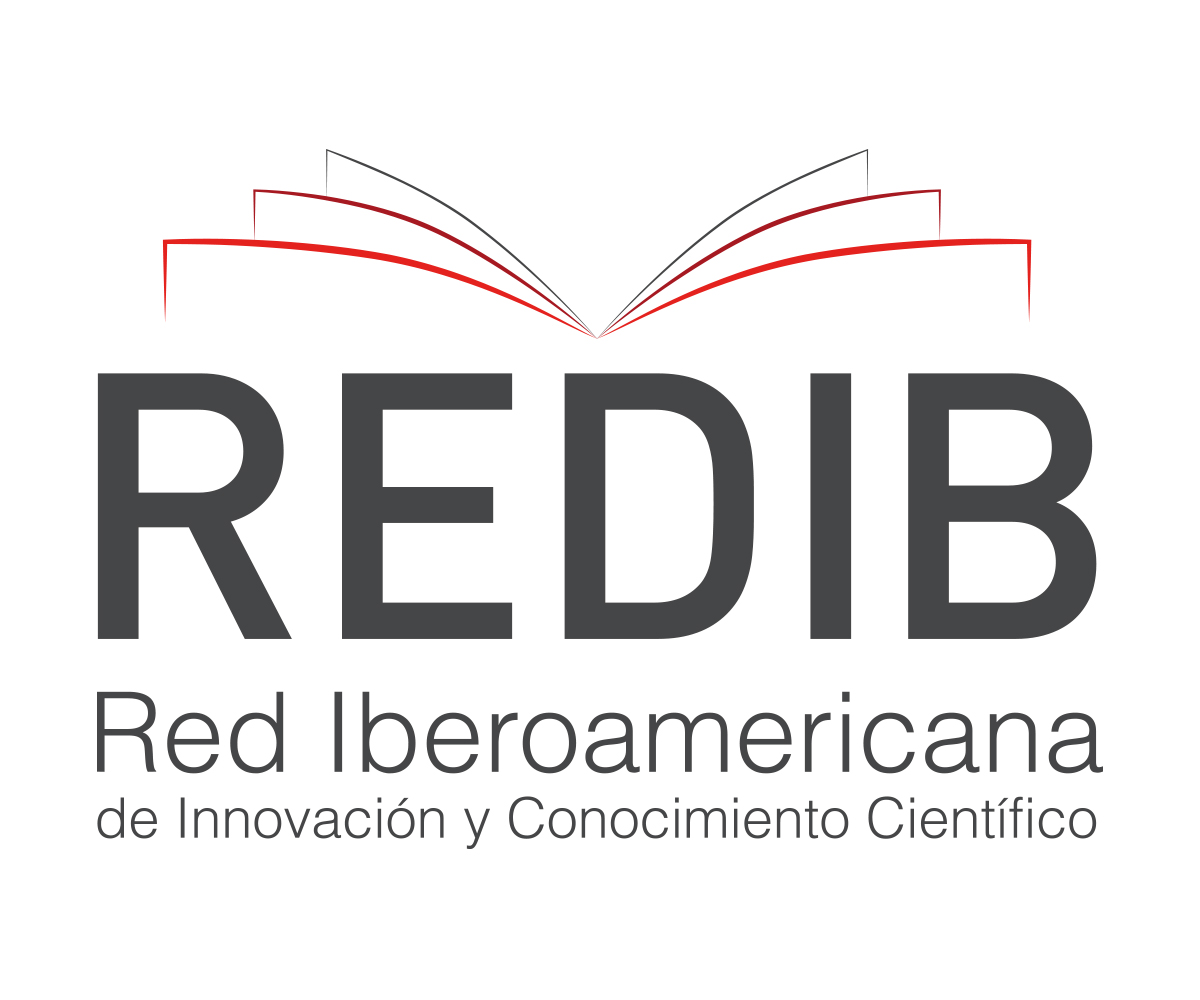About the Journal
Focus and Scope
The Anuario Colombiano de Historia Social y de la Cultura is the journal published by the History Department of the Universidad Nacional de Colombia, Bogota campus. The main objective of the ACHSC is to disseminate research on Colombian history; however, it also accepts comparative articles on Latin America and the world, as well as historiographical and theoretical analyses. The journal promotes the diffusion of the works in such fields of study in physical format as well as in digital media in the Open Journal System.
Due its main objective is the dissemination of historical knowledge. the magazine does not have article processing charges (APCs) or article submission charges.
Peer Review Process
The Anuario Colombiano de Historia Social y de la Cultura receives only original and unpublished papers for evaluation; translations, lectures, or parts of works already published by any means are not accepted. The contributions to the journal should be written in Spanish, English, or Portuguese. Book reviews and articles sent for review should not be submitted concurrently for review by other journals. Reviews of books published over three years ago will not be considered.
In conformity with the standards established by Colciencias, three competent peers review each article. The evaluators have maximum three weeks to issue their opinion. The authors shall only be notified of the outcome of the evaluation when the reviewers have issued their opinion and the Editorial Committee of the journal has made a final decision regarding publication of the article, no more than two weeks after knowing the peers’ result.
Evaluators of the articles submitted to the Journal must have broad knowledge of the topic covered. Although the editorial team of the Anuario analyzes the suitability of evaluators, potential evaluators should also assess their suitability for the function. If an invitation to evaluate is declined, this must be so communicated to the Journal so that it can designate a new evaluator.
Although the Anuario employs a “double blind” system for evaluation of the articles, the evaluators must abstain from the evaluation in the event of direct or indirect conflict of interests with the review.
Open Access Policy
The Journal provides immediate free access to its content under the principle that research freely available to the public contributes to the exchange of global knowledge.
Code of Ethics
The Anuario Colombiano de Historia Social y de la Cultura is a publication interested in consolidating the disciplinary field of history in Colombia and in Latin America. It is interested not only in the promotion of original and unpublished research but also in a close and clear dialogue with authors, juries, contributors and, in general, with all the community academic.[1]
Before contributing to the Journal as author or evaluator, the following considerations must be taken into account:
Considerations for Authors
Editorial Preparation. Authors interested in publishing in the Anuario must consult the “Guidelines for Authors” available in Spanish, English and Portuguese at: http://www.humanas.unal.edu.co/historia/publicaciones/anuario/. These guidelines give detailed information about how the manuscripts must be formally submitted to the Journal.
Recognition of Authorship. All persons referenced as authors must have worked in the preparation of the text and their order of appearance will be alphabetical or according to their participation in the research. This last modality will be agreed on between the authors. Material supporting the text (figures, maps, tables, annexes, among others) must have the respective licenses and references.
Funding. Articles funded by an institution must explicitly state the terms of funding, the project code that supports the research, the execution period and whether it is a finished product or a partial delivery.
Originality and Exclusivity of the Submission. Upon submission of the work to the Anuario, the authors must complete a letter accepting the conditions for submission of articles and reviews so that the Journal can proceed securely and diligently with the editorial process; authors must not submit manuscripts that have been previously published in scientific journals, compilations, chapters of books, memories of events, or any other publication.
When the article submitted is the continuation of earlier research, the authors must explicitly so state, to avoid confusion or the possible duplication of work. After the evaluation process, declined articles may be submitted by their authors to other media.[2]
As part of its editorial policy and in the interest of promoting national and international historiographical reflection, the Anuario is interested in original and unpublished articles. In case of doubts about originality or exclusivity, the Journal reserves the right to request relevant clarifications from the author.
Plagiarism. Plagiarism is incorrect and unethical conduct characterized by total or partial reproduction of works without recognition to the authors. Authors must reference all fragments or ideas taken from other sources. Paraphrased texts must not change the sense of the original text and must be correspondingly referenced.[3]
Editorial Cooperation After approval of the articles, authors must commit to a fluid dialogue with the editorial team of the Anuario to ensure quality of the issue. Authors will respond to inquiries from the Journal and the Journal will respond to concerns of the authors.[4] This cooperation process will be governed by an editorial timetable, responding on a timely basis to corrections and suggestions by the evaluators of the articles.
Considerations for Evaluators
Evaluation. Evaluators of the articles submitted to the Journal must have broad knowledge of the topic covered. Although the editorial team of the Anuario analyzes the suitability of evaluators, potential evaluators should also assess their suitability for the function. If an invitation to evaluate is declined, this must be so communicated to the Journal so that it can designate a new evaluator.
Conflict of Interests. Although the Anuario employs a “double blind” system for evaluation of the articles, the evaluators must abstain from the evaluation in the event of direct or indirect conflict of interests with the review.[5]
Arbitration Process. The Anuario offers a review format for evaluators to qualify submitted texts, from an academic, critical and documented perspective. The evaluation is based on the importance and originality of the topic, the contribution to historical or historiographical knowledge, bibliographic sufficiency and relevance as well as clarity in terms of argumentation, writing, coherence and the academic quality of the work.
The Anuario believes the evaluation process should be helpful to authors and therefore invites the evaluators to give reasoned and constructive academic criticism. The Anuario reserves the right of publication subject to the comments of the evaluators, the corrections made by the authors and the final approval by the Editorial Committee.
Review times. To meet the editorial schedule of the Anuario, all parties involved must respect the delivery dates agreed upon. Because one of the most import steps in the preproduction of an issue is the article evaluation, evaluators have three weeks from receipt of the text to deliver their comments.
Communication. Evaluators commit to constant communication with the editorial team of the Journal, either to arrange for delivery of the comments or to inquire about the work to be carried out.
Use of information. Another major responsibility of the evaluators is related to the use of the received manuscripts. As the texts are original and unpublished, they are made available to the evaluators only for evaluation purposes.
Ethical Responsibilities of Journal
The Anuario carries out a transparent editorial process, on equal terms, without privileging any author by institutional affiliation or academic career. The publication of articles and reviews depends solely on their academic quality and is not conditioned to other factors (subscription to the Journal, payment for publication, among others). The Anuario supports free access to its content, the promotion of debate and the development of the discipline of history.
The Anuario maintains anonymity between jurors and authors during and after the arbitration process, and under this logic, the results of the evaluations will only be communicated to the authors.
The Journal also undertakes to maintain open and clear communication with the authors and evaluators during the publishing process to ensure the quality of the work. As part of the cooperative process, the editorial team will always be attentive to resolve questions, comments and suggestions.
In order to ensure the academic and editorial quality of the Journal, the Editorial Committee reserves the right of approval or rejection of submitted material both before and after the evaluation process. All decisions will be based on strict academic arguments and on the rules established by the Journal.
[1] These ethical considerations are discussed in Juan D. Velásquez, “Sobre la ética en la publicación científica”, Revista avances en sistema de información 7.3 (2010): 7-10, available at: http://www.bdigital.unal.edu.co/28789/1/26644-93546-1-PB.pdf and Wilson E. Colmenares Moreno, “Ética en la publicación científica”, Curso de gestión de citas y referencias bibliográficas para las revistas científicas y académicas de acceso abierto de la Universidad Nacional de Colombia (Bogotá: Universidad Nacional de Colombia, 2014), available at:
http://www.bdigital.unal.edu.co/12234/7/Curso_Citas_Referencias_SINAB-Unidad_1-06_03_14.pdf
[2] Elsevier, “Envío simultáneo/múltiple, Publicación duplicada”. Available at:
https://www.publishingcampus.elsevier.com/websites/elsevier_publishingcampus/files/Guides/Quick_guide_SSUB02_ES_2015.pdf
[3] Elsevier, “Plagio”. Available at: https://www.publishingcampus.elsevier.com/websites/elsevier_publishingcampus/files/Guides/Quick_guide_PLA02_ES_2015.pdf
[4] Elsevier, “Policies and ethics”. Available at: http://www.elsevier.com/authors/journal-authors/policies-and-ethics
[5] Elsevier, “Conflicto de intereses”. Available at:
https://www.publishingcampus.elsevier.com/websites/elsevier_publishingcampus/files/Guides/Quick_guide_COI02_ES_2015.pdf. Can also be consulted at J. Matías Guiu y R. García Ramos, “Conflicto de intereses y publicaciones cientificas”, Neurología 27.1 (2012). Available at: http://www.elsevier.es/es-revista-neurologia-295-articulo-conflicto-intereses-publicaciones-cientificas-90101004
Reviewer Guidelines
Evaluación. Quienes acepten la invitación para evaluar los artículos de la revista deben poseer un amplio conocimiento en la temática de estos. Aunque el equipo de redacción del Anuario analiza la idoneidad de los jurados, se espera que los evaluadores potenciales reconozcan su idoneidad para dicha función. Si dicha invitación se declina, es necesario comunicarlo a la revista para que esta designe un nuevo jurado.
Intereses en conflicto. Aunque el Anuario emplea el sistema de “doble ciego” para el arbitraje de los artículos, los jurados deberán abstenerse de realizar la evaluación si tienen intereses en conflicto, directos o indirectos, con la revisión.
Proceso de arbitraje. El Anuario cuenta con un formato de revisión para que los evaluadores califiquen los textos postulados, desde una perspectiva académica, critica y documentada. La evaluación se basa en la importancia, la originalidad del tema, el aporte al conocimiento histórico o historiográfico, la suficiencia y la pertinencia bibliográfica, así como la claridad en cuanto a argumentación, redacción, coherencia y la calidad académica del trabajo.
La dirección del Anuario se interesa en que los conceptos del proceso de arbitraje sean provechosos para los autores. Por ello, invita a los jurados a realizar una crítica académica constructiva y fundamentada. El Anuario se reserva el derecho de publicación, según los comentarios de los evaluadores, las correcciones realizadas por los autores y la aprobación final por parte del Comité Editorial.
Tiempos de revisión. Para dar cumplimiento a los cronogramas editoriales del Anuario, se solicita, a todas las partes involucradas, atender las fechas de entrega pactadas, pues dado que uno de los pasos más importantes en la preproducción de un número es la evaluación de los artículos, los árbitros cuentan con tres semanas de plazo para emitir su concepto, a partir del día de recepción del texto.
Comunicación. Los jurados adquieren el compromiso de mantener una comunicación constante con la redacción de la revista, bien sea para acordar la entrega de los conceptos o para comentar dudas sobre las tareas a realizar.
Usos de la información. Otra de las mayores responsabilidades de los evaluadores del Anuario se relaciona con el empleo que hagan de los manuscritos recibidos. Debido al carácter inédito y original de los textos, no podrán hacer uso de ellos más allá del contexto de la evaluación.



